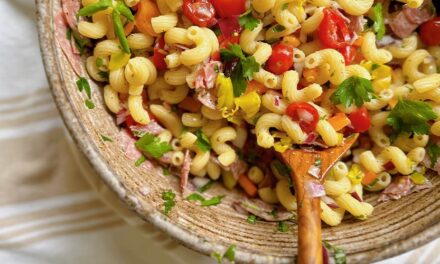Over 26 million people in the United States (roughly 8%) experience seasonal allergies. Unfortunately, seasonal allergies are largely impacted by genetics and the environment. However, recent studies suggest that consuming adequate omega-3 fatty acids, prebiotics, and probiotics may help to relieve the runny nose and watery eyes you experience during certain times of the year. Other tips for reducing symptoms related to seasonal allergies are to avoid tobacco and to get plenty of sleep at night (7-9 hours).
Sources of omega-3 fatty acids include:
- walnuts
- chia seeds
- ground flaxseed
- hemp seeds
- nori/seaweed
- spirulina
- fatty fish (salmon, tuna, mackerel, herring, and trout).
Sources of prebiotics include:
- whole grains
- apples
- bananas
- asparagus
- onions
- legumes
- garlic
- soybeans
- artichokes
- whole rolled oats
- leeks.
Sources of probiotics include:
- kombucha
- kefir
- sauerkraut
- kimchi
- yogurt
- miso
- tempeh
Seasonal allergies can also be linked to certain food allergies. Pollen food allergy syndrome, also known as oral allergy syndrome (OAS), occurs when a protein in a fruit, vegetable, or nut that is similar to a protein in allergy-causing pollen causes you to have a reaction. In other words, the body mistakes a protein in a certain food for an allergy-causing pollen protein, causing you to have a reaction to that food.
For example, some people experience redness, swelling, and itching of the mouth and tongue when they eat a banana. They may have a ragweed allergy, and their body mistakes a certain protein in bananas for the protein found in ragweed pollen that causes the allergy. The structure of the proteins is so similar that it confuses the immune system.
The good news is, most of the time the reaction does not last long and is not life-threatening. It is typically specific to the mouth and not systemic. If you experience a systemic reaction (like anaphylactic shock) with certain foods, it is recommended you see an allergist.
One out of five individuals with grass allergies and seven out of ten individuals with birch tree allergies suffer from oral allergy syndrome. This means that not everyone with seasonal allergies experiences OAS. Those with grass allergies may experience a reaction when eating tomatoes or potatoes. Those with ragweed allergies may experience a reaction when eating melons, zucchini, cucumber, or bananas.
Those with birch tree allergies may experience a reaction when eating celery, kiwi, cherries, hazelnuts, almonds, pears, plums, peaches, carrots, or apples. If you find that you tolerate a certain fruit or vegetable peeled better than raw, it’s possible that the fruit or vegetable came in contact with the allergy-causing pollen.
If you have OAS, it is recommended that you experiment with different fruits and vegetables in their raw, cooked, canned, and dried states. Often, people with OAS who do not tolerate a certain raw fruit or vegetable will tolerate that food once it has been cooked. The reason for this may be related to the breakdown of the protein during the cooking process.
Washing and/or peeling raw fruits and vegetables can also be the difference between experiencing a reaction and tolerating a specific food, especially if the reason for the reaction was the food coming into physical contact with an allergy-causing protein. Consider consulting with an allergist for any additional concerns you may have with seasonal or food allergies.
References:
1. Güvenç IA, Muluk NB, Mutlu FŞ, Eşki E, Altıntoprak N, Oktemer T, Cingi C. Do probiotics have a role in the treatment of allergic rhinitis? A comprehensive systematic review and meta-analysis. Am J Rhinol Allergy. 2016 Sep 1;30(5):157-175. doi: 10.2500/ajra.2016.30.4354. Epub 2016 Jul 20. PMID: 27442711.
2. Miyata J, Arita M. Role of omega-3 fatty acids and their metabolites in asthma and allergic diseases. Allergology International. 2014 August 1;64(1):27-34.
3. Furahjelm C, Warstedt C, Larsson J, et al. Fish oil supplementation in pregnancy and lactation may decrease the risk of infant allergy. Acta Paediatr. 2009;98(9):1461-1467.
Kristi Edwards, co-founder and owner of 901 Nutrition, LLC, is a licensed and registered dietitian in Memphis. Kristi has several years of experience with chronic kidney disease and is passionate about helping clients implement dietary changes that can delay and prevent the need for dialysis. Kristi also helps clients ditch dieting for good, through intuitive eating and the enjoyment of food. To learn more about 901 Nutrition or to subscribe to their free newsletter for monthly recipe books, visit 901nutrition.com. You can also follow 901 Nutrition on Facebook, Instagram, Twitter, and LinkedIn. To reach Kristi, call 901.800.9526 or email [email protected].







